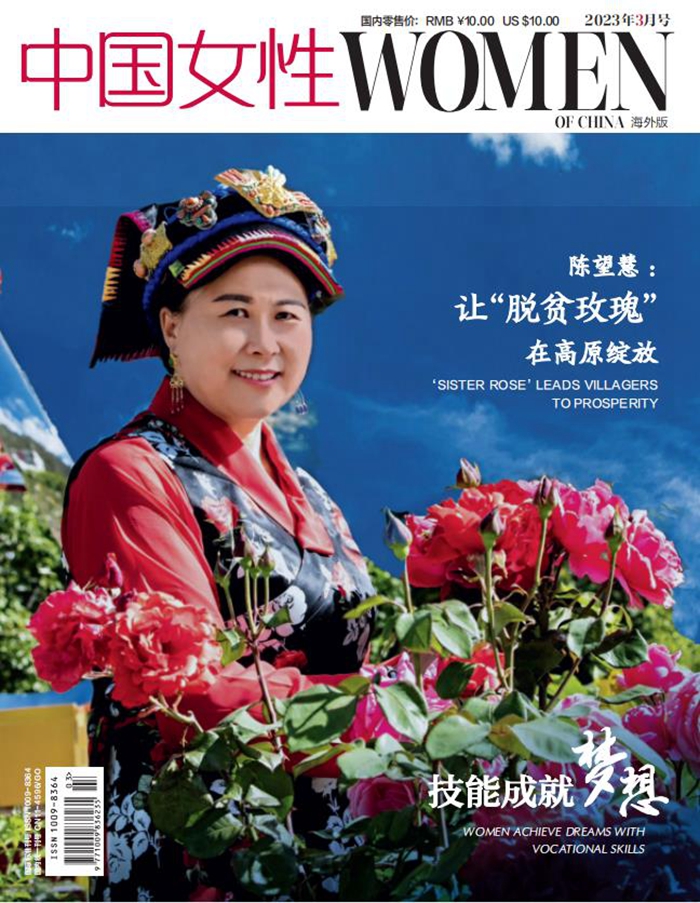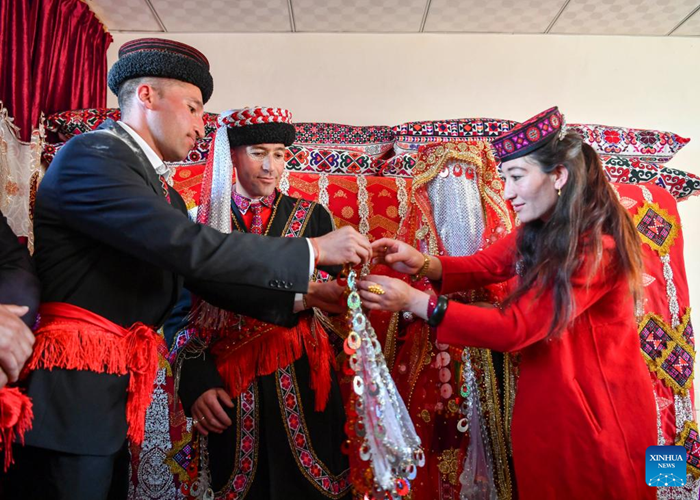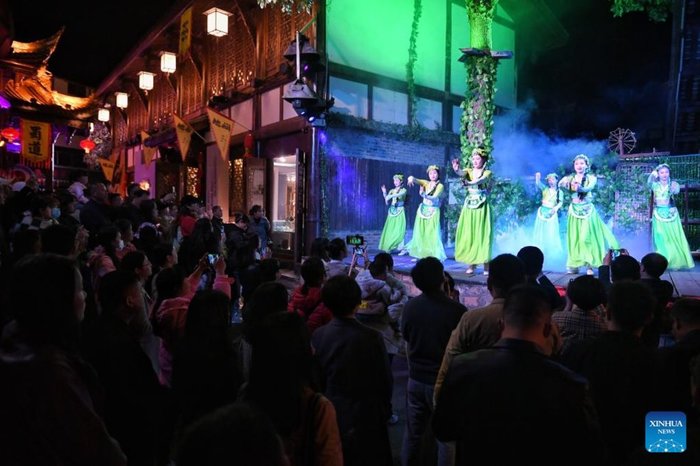Collector Helps Yugur Culture Stay Alive
Ke Cuiling, one of China's best-known collectors of traditional artifacts related to the Yugur ethnic group, owes about 1.7 million yuan ($262,000) after building a traditional village to preserve her indigenous culture.
The 60-year-old from Zhangye, Gansu Province, amassed her collection to help preserve the group's traditions, which she feels are disappearing rapidly.
"The Yugur reside mainly in Gansu. We have no written language, so it isn't easy to record or maintain our customs. This group of only about 10,000 people doesn't have too many traditional items left, and as time passes, they will disappear if they aren't protected," she said.
Although Ke has collected thousands of items, she refuses to sell any of them, despite her debts. "If I sell them, how will our descendants learn about their culture?" she said.
As the Yugur increasingly swap their nomadic, herding lifestyle for an urban one, they are also relinquishing their traditional skills, tools and other items.
"The younger generation doesn't know how to make a tent or yak butter. Some outdated things should be discarded, of course, but the unique Yugur culture must be retained," Ke said.
She began collecting traditional items at the age of 14, but later she intensified her efforts and sank all her income and savings into protecting relics.
"I realized that these things might vanish some day, and they deserved to be preserved," she said.
Ke recalled that she initially began collecting old pieces of embroidery because her mother had taught her how to sew and embroider, and she loved the artifacts those skills produced.
Later, she realized that her peers were gradually replacing traditional wooden utensils with plastic ones. In response, she began collecting other discarded items such as teapots, wardrobes and horse saddles because they were unique to the Yugur, she said.
In the past, many members of the group lived in tents on the grassland. They made a living by herding, so they had to move during summer and winter when their cows and sheep needed new grazing grounds.
"As a result, our wooden storage boxes are narrow and short, because they needed to be convenient for transportation by horse during our frequent moves. They are different from the boxes used by people whose lives are settled in one place," Ke said.
She continued to collect the items even though she didn't know how to take care of them.
Art and Administration
Ke is a gifted artist. In 1984, she won one of the top prizes in a painting contest held in her hometown in Sunan Yugur Autonomous County, which is administered by Zhangye. Three years later, she was admitted to the fine arts major at Northwest Minzu University in Lanzhou, Gansu's capital.
"During my college years, I visited a museum for the first time. I then realized that what I had been doing was 'collecting'. The more I learned in college, the more I felt that the Yugur culture needs to be better protected," she said.
After graduation, Ke worked for the Sunan county cultural center as an administrator while continuing her collecting activities.
On one occasion, she heard that a herder was selling a traditional leather bag for 2,000 yuan. She borrowed the money but discovered that the item had already been sold.
Undeterred, she copied the style and made a similar bag. "Things like that bag are becoming rarer. A copy can at least let people know of its existence," she said.
Over the years, Ke has traveled across Gansu in search of folk items and Yugur craftsmen who could teach her traditional skills such as leather carving.
As her activities became well-known, some Yugur donated their old items to her collection. One man presented Ke with his dead grandmother's beads because he knew she would protect them well and would never sell her collection for profit.
She said her most difficult time came in the 1990s, despite her growing fame, because of the debts she had incurred while building her collection. "Back then, I felt embarrassed when I could not buy my daughter an ice candy because I didn't have the spare cash," she said.
In 1992, she found a second source of income to supplement her earnings at the cultural center.
"I traveled to Shenzhen, Guangdong Province, and sold my handmade, embroidery-decorated bags for $10 each to some foreign visitors there who appreciated our culture a lot."
Inspired by the experience, she opened a shop in her home county. In 2012, the store evolved into a workshop where she makes traditional Yugur costumes, tents and handicrafts.
"We make these items for museums that want to display them and for ceremonies such as weddings. I have to make money, otherwise my costly collecting career will end," she said.
The same year, she became a national inheritor of Yugur costume culture, recognized by the then Ministry of Culture, now the Ministry of Culture and Tourism.
"I felt more responsibility on my shoulders after that," she said.
In her spare time, Ke traveled across the Sunan countryside. In 2012, she spent more than a month tracing the nomadic routes of the ancient Yugur people.
The journey spanned Zhangye, Dunhuang in Gansu and Turpan in the area around the Tianshan Mountains in the Xinjiang Uygur Autonomous Region.
"It was a rewarding trip because I met and chatted with a lot of people, some of whom shared similar language and folk customs with the Yugur," she said.
Spreading the Word
In 2014, she decided to further spread the Yugur culture by building a village where visitors could see various artifacts and get a glimpse of the group's traditional daily life.
The Sunan county government allocated 20,000 square meters of land for the settlement, and Ke paid the construction fees of 6 million yuan.
"I only had 200,000 yuan, so I borrowed the rest from relatives, friends, employees. I also got loans from banks, thanks to my good reputation in the county," Ke said.
Despite her debts, she insists that entry to the village will remain free, as it has been since its 2015 opening. In 2016, the village attracted about 40,000 people, its highest visitor numbers so far.
"Free entry means a lot of people will come to learn about our Yugur culture," Ke said.
Her family constantly encourages her to continue obtaining artifacts for her collection.
"My mother, a herder, taught me to cherish our culture and old items. My husband undertakes nearly all the household chores, and I have taught my son and daughter-in-law how to design and make handicraft items so they can help me with my work," Ke said.
So far, her collection has been displayed in Beijing, Shanghai, Shandong Province and the Inner Mongolia Autonomous Region.
(Source: China Daily)
Please understand that womenofchina.cn,a non-profit, information-communication website, cannot reach every writer before using articles and images. For copyright issues, please contact us by emailing: website@womenofchina.cn. The articles published and opinions expressed on this website represent the opinions of writers and are not necessarily shared by womenofchina.cn.








 WeChat
WeChat Weibo
Weibo 京公网安备 11010102004314号
京公网安备 11010102004314号